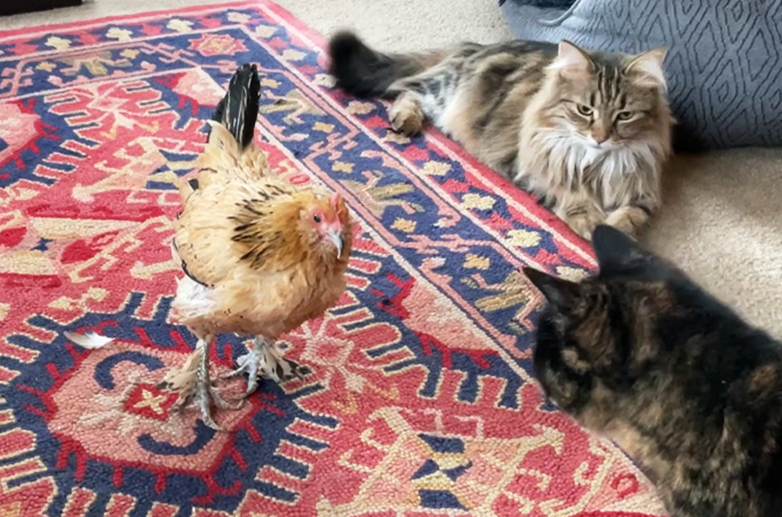An exceptional case.. A chicken entered the Guinness Book of Records as the first chicken to survive for 21 years

A chicken entered the Guinness Book of Records as the first chicken to survive 21 years - photo from unsplash
In an exceptional and unique case, a 21-year-old chicken entered the Guinness Book of World Records for surviving to this age.
She is 21 years old
In detail, the chicken called “B-Nat” is considered the first chicken in the world to reach the age of 21 years, which qualified it to enter Guinness.

More than two decades
It is known that chickens usually live for only 5 to 8 years, and this means that “B-Nat” is a very exceptional case that entitled her to enter the Guinness Book of Records, as the first chicken to survive for more than two decades.
B-Nat Chicken
Many press reports revealed that the chicken “B-Nat”, owned by a couple from the American state of Michigan, hatched from its egg 21 years ago, and was rejected by its mother, which prompted the couple to raise it and take care of it themselves, and since then the chicken, which is a third the size of Natural chicken, in the couple's living room.

According to reports, Bee Nat had a busy life, as she spent her early years inside the house at first, then later lived outside with other chickens, but as she grew older, she returned to the care of her loyal owners, where she would sit on her owner’s lap and love to watch TV. She spends a lot of time in her owner's apron pocket while doing her daily work.
Lucky B-Nat also lives in a friendly relationship with other animals on the farm, such as dogs and cats.

Average lifespan of chickens
A healthy chicken's lifespan is between 8 and 12 years, and there are of course surprising exceptions to these age limits.
Hens begin producing eggs from 5 to 6 months of age until the last years of their lives. However, most chickens stop producing eggs at a good rate when they reach 3 years of age, and during the first years of their lives, chickens produce an average of 180 - 270 eggs per year.

Factors affecting the life span of chickens
• Chicken breed.
• Feed and diet.
• Numbers of chickens inside the barn.
• Veterinary care.
• Walking around.
• Insects.
• Diseases.
• High or very cold temperatures.
• Clean, dry and moderate temperature environment.
Source: websites

